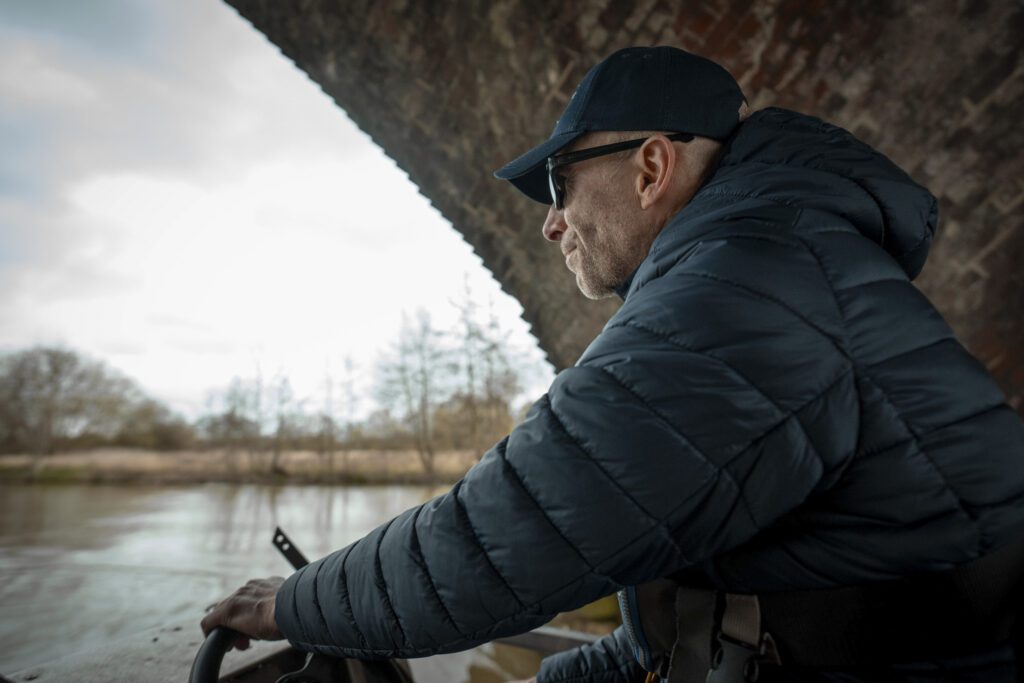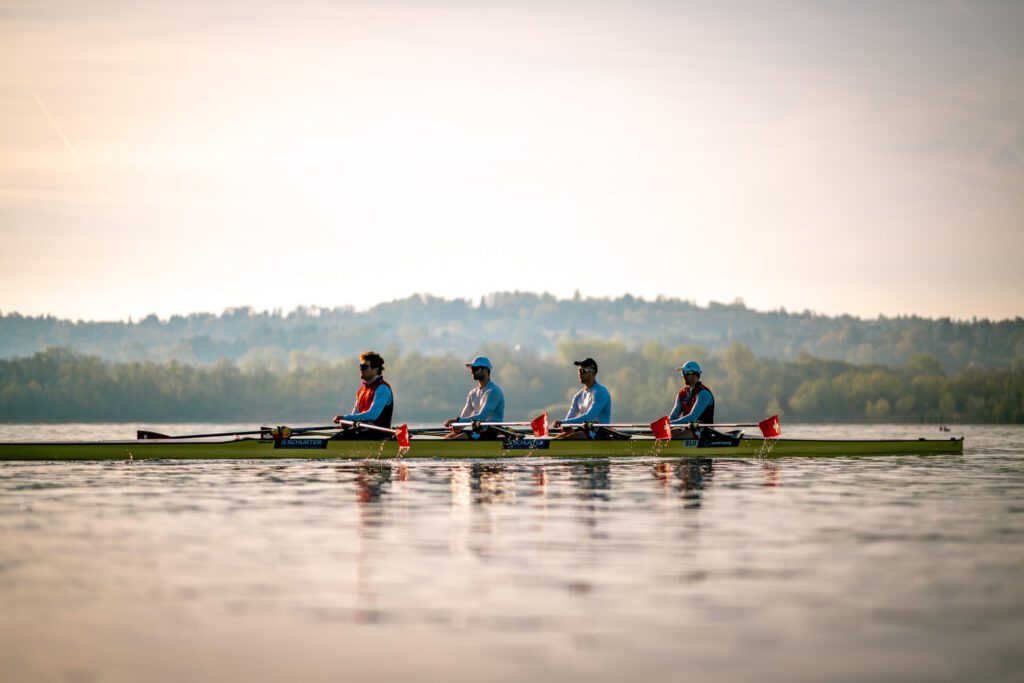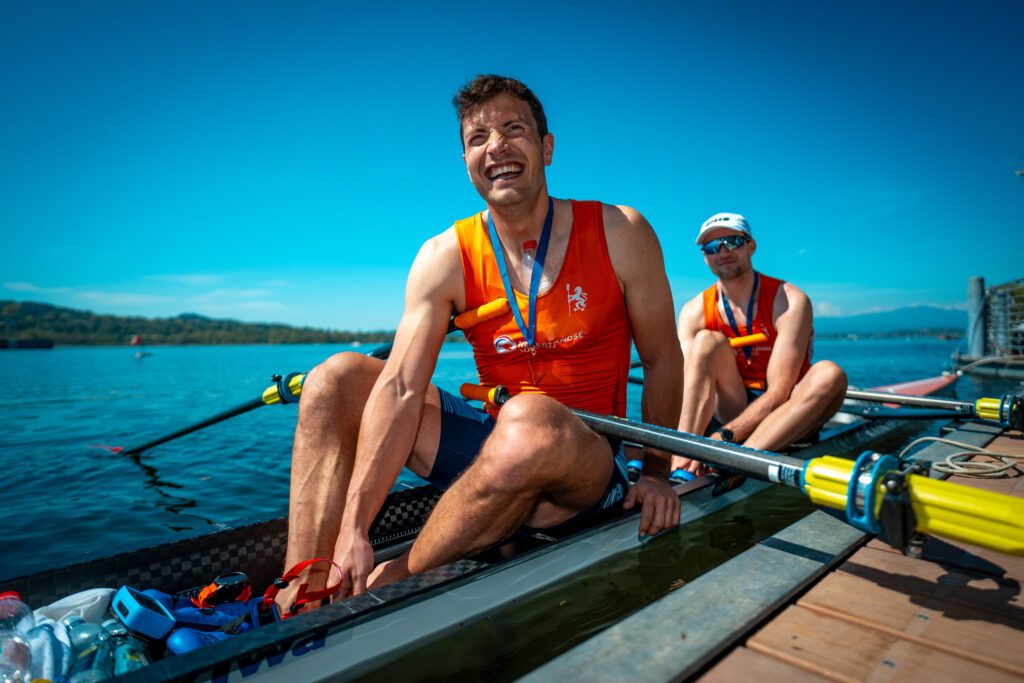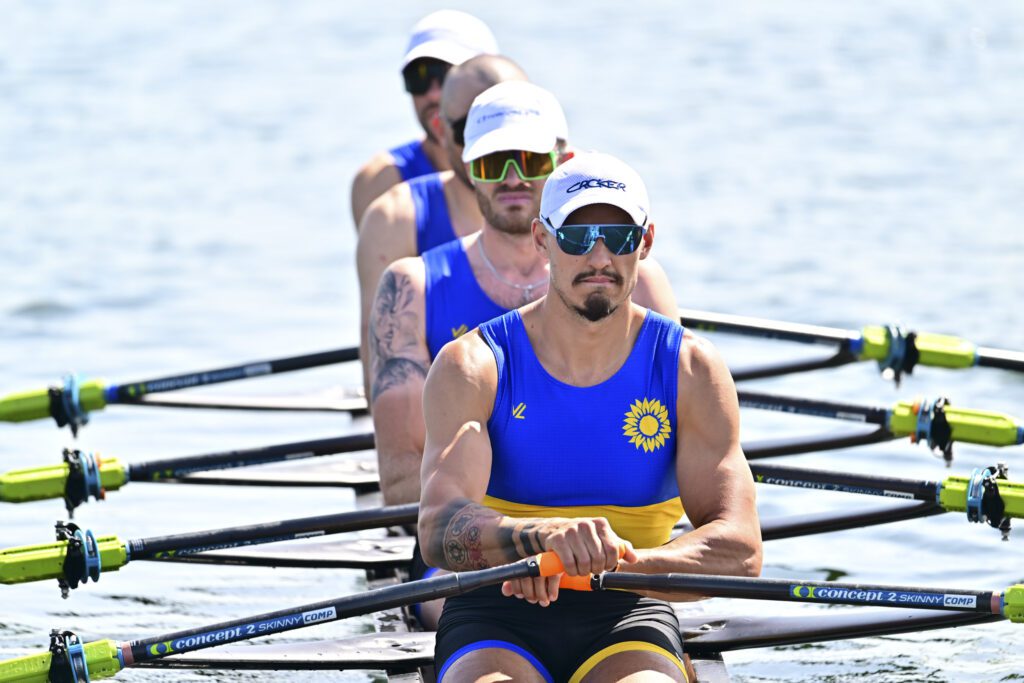The 2019 world championships will forever be overshadowed by the loss in training a few days ago of a para-rower. In an accident which is under investigation by local Austrian police, Belarussian PR1 rower Dzmitry Ryshkevich capsized and drowned during training on Wednesday 21st August, and the start of the world championships in blazing sunshine on Sunday was understandably muted.
Some teams including Great Britain wore black ribbons for Ryshkevich on Sunday, there was a minute’s silence at the start of Saturday’s opening ceremony — apparently also observed even by the athletes who weren’t attending — and on Sunday afternoon the PR1 singles races were preceded by a short tribute video featuring world PR1 champion Erik Horrie, who then wore a black armband as he raced his opening heat. Rescue boats were heavily in evidence and there was a palpable sense of relief every time a PR1 or PR2 boat safely crossed the finish line.
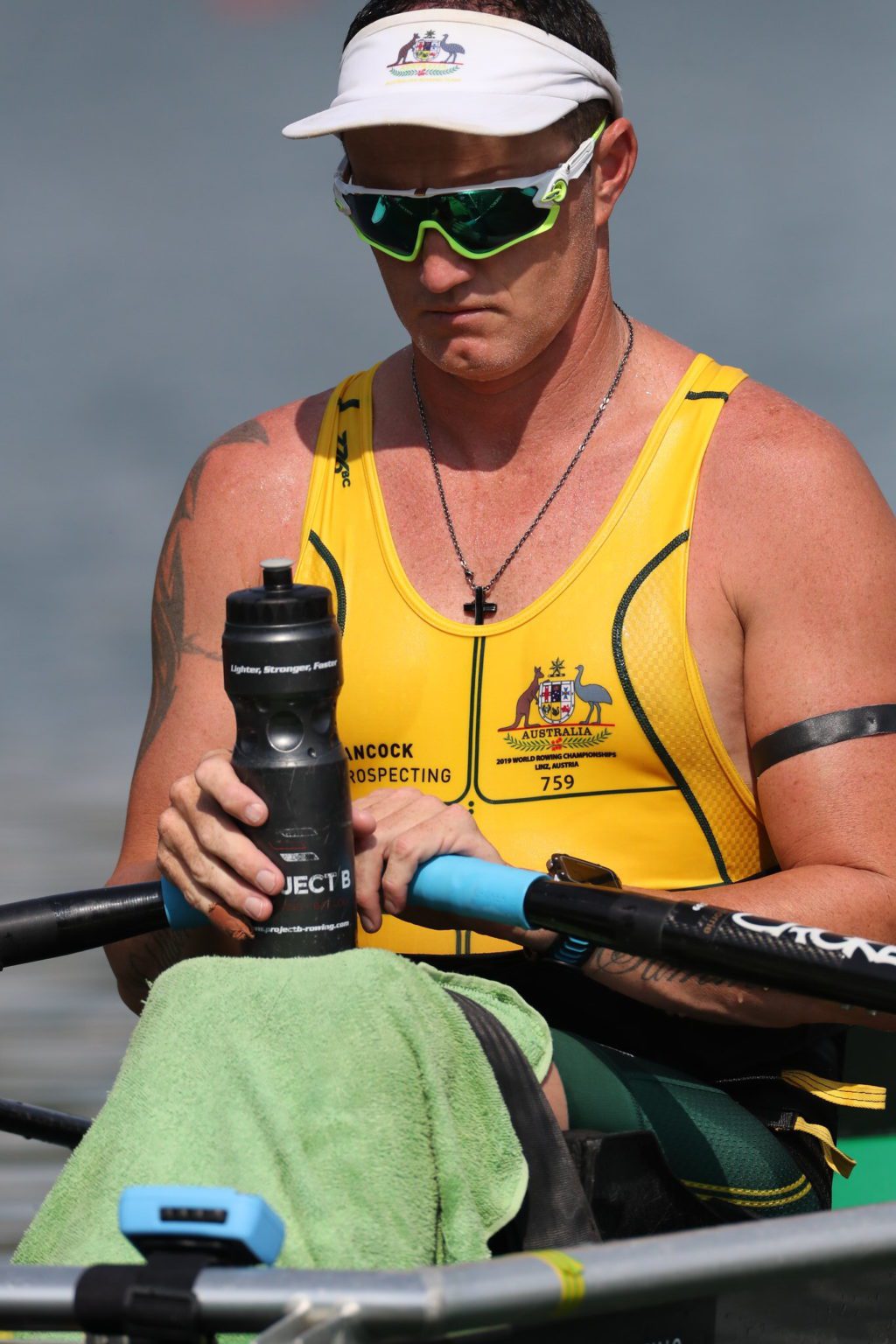
Photo Erik Horrie wore a black armband as he raced his opening heat in memory of Belarussian PR1 rower Dzmitry Ryshkevich
Credit World Rowing
There was one obvious result of the tragedy: the first communication FISA issued for the regatta stated that the Thai PR2 double and PR1 men’s single had withdrawn on safety grounds. Unprecedented in world rowing, the Executive Committee asked the Thai team to take them out of racing between the draw and heats, after the crews’ ability and experience had been judged insufficient. The Thai team management agreed, whittling their squad down to just the lightweight women’s double, which may have been sensible. There are some other crews who seemed to be struggling to stay in time while rowing on Sunday, but crucially all of them have full use of their legs and nobody is in a mood to take any chances.
The main feature of opening day was, unsurprisingly, sheer numbers. Eighty countries have entered in Linz, more than half of which have put in an openweight men’s single, and a third of which entered a PR1 men’s single. Quarterfinals in eight different events, including both men’s and women’s pairs, which is new. The top crews of the season were seeded into different heats so racing tended to have predictable winners and wasn’t too close, but the main headline is that all the biggest names got off the start fairly well.
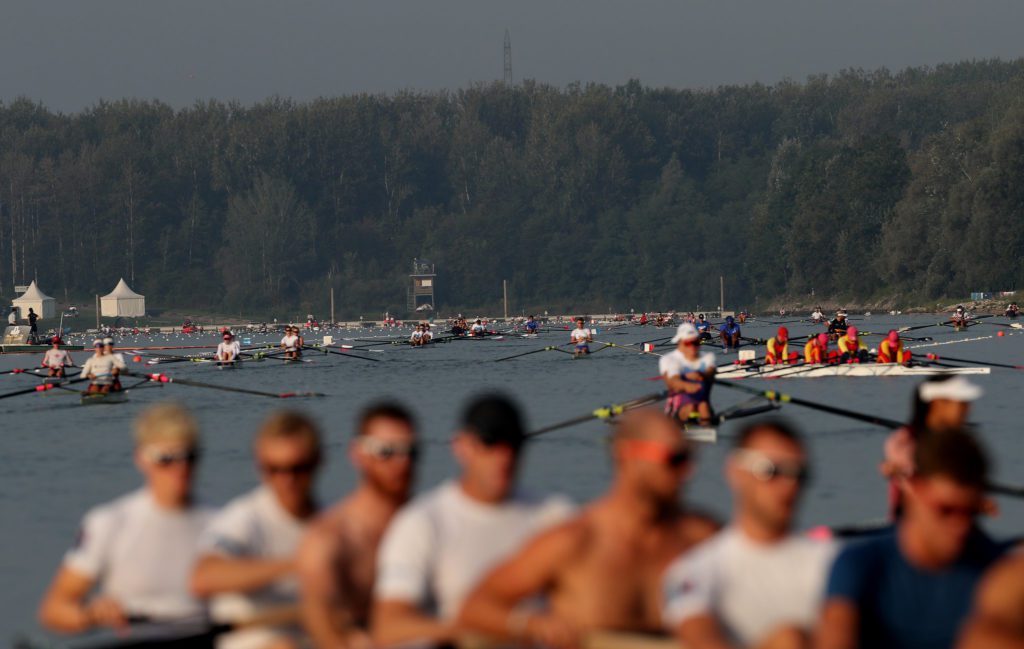
Photo The main feature of opening day was, unsurprisingly, sheer numbers.
Credit World Rowing
Cuba’s star sculler Angel Fournier Rodriguez could be counted as one of the rare exceptions, since something put him off his game enough to put him fourth in a race where only two went straight through to the quarter-finals. By the time the men’s singles raced the very slight wind had dropped and the scorching sun had been covered by cooling clouds, so the problem was unlikely to be the conditions. The winner of that race was this year’s precocious under-23 singles medallist, Greek Stefanos Ntouskos, who went to his first age-group worlds five full years ago.
The women’s singles also went as expected, with the eighth and last heat featuring a relaxed and commanding victory from Irish world champion Sanita Puspure, returning after absence. It will be staggering if the medal fight next weekend doesn’t see her and Kiwi Emma Twigg dashing down the course bowball to bowball, while the contest for the nine Tokyo places will be relentless in a field with so many good oarswomen even with Ekaterina Karsten having withdrawn before the draw.
Other highlights of the day included Turkey winning their heat of the men’s pairs while the extraordinary South Africans John Smith and Lawrence Brittain were comfortably in charge of theirs. The gruellingly contested lightweight doubles had some of the tighter margins, and the men’s fours were subject to one-through progression, which put the onus on the Australians, Italians and Brits to pull out all the stops to take those semi-final places. Games are being played already: the Aussies looked best in class until they took it down for the final quarter of the race, allowing the Dutch to hope briefly but still defeating them by 1.55 seconds. Conversely it didn’t look as if the Poles were using any tactics when hounded to the line by Russia in the men’s quads, and the lightweight men’s singles, even with three-through per race, were sparkling with energy and some very good performances by scullers who may find it hard to maintain that standard all week.
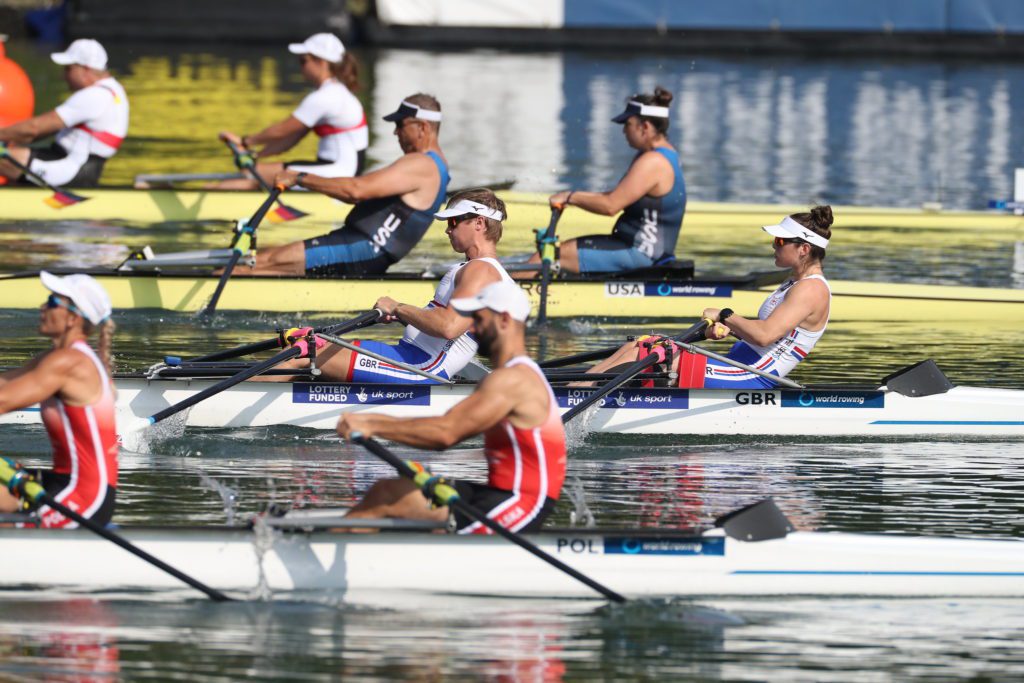
Photo Lauren Rowles (b), Laurence Whiteley (s), PR2 Mixed double sculls, Great Britain, Linz Ottensheim, Austria
Credit World Rowing
In the para-rowing, Lauren Rowles and Laurence Whiteley came within four seconds of Annike van der Meer and Corne de Koning’s PR2 Mx2x world best time in the Britons’ heat (by the way, both crews won their races extremely easily), and the British para-four only 1.3 seconds off their own world best time set in Sarasota two years ago. The para-events are still catching up with world best times after switching from 1km to 2km, so we should expect some speed on days when the rest of the categories were generally 20-30 seconds off, but the quality at the top of the Paralympic categories is notable. The two Dutch PR2 scullers are copying their world cup feat and also doubling up in the new non-Paralympic PR2 singles, made easier by the fact that the singles events are racing on different days this week and the women’s PR2 singles are a straight final.
Britain’s new para-sculler, Ben Pritchard, beat Russian Alexey Chuvashev to take the only qualifying spot in their heat. It was a particularly satisfying outcome for GB supporters, given that Pritchard rows Tom Aggar’s boat, the one in which Aggar was knocked into fourth by Chuvashev at both the 2012 Paralympics and 2013 worlds. Pritchard’s improvement even in the last two months has been remarkable, and it would not be surprising if he was vying against top rivals Erik Horrie (AUS) and Roman Polianskyi (UKR) in the medal race later this week.
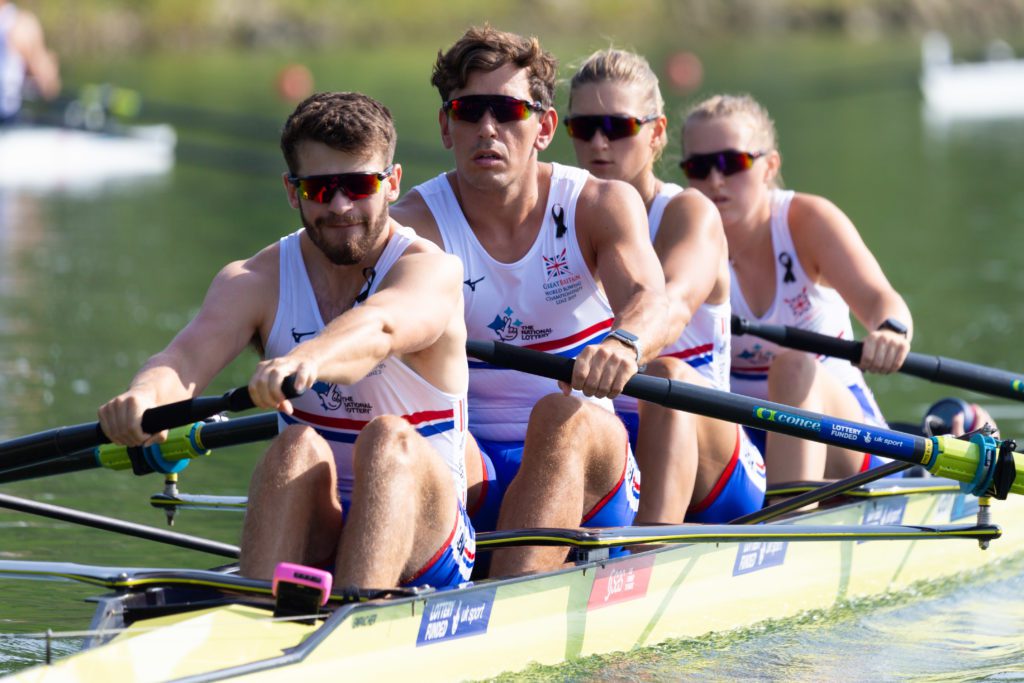
Photo GBR PR3 Mix4+, Linz, Austria
Credit Anthony Benoit
A word more about Dzmitry Ryshkevich, before we move on to Monday’s racing. The latest information is that the Belarussian had managed to release his shoes and chest strap and exit the boat when it flipped, but that he seems to have let go of the boat as the rescue launch approached, for reasons unknown but possibly medical. The capsize seems to have been precipitated by a break in the connection between one of the stabilising side floats and the shell. No warnings about unsafe equipment have been issued by FISA, however their executive director Matt Smith had already confirmed that FISA would wait for the police to finish their investigation before checking into whether any controllable rowing elements such as equipment needed to be amended. We don’t know when the police will conclude their procedure: it may not even be while the rowers of the world are at Linz, so the uncertainty could run on.
There is important business to be done: medals to be won and Tokyo places to be confirmed. And so without a fanfare or a fuss, the worlds will continue. Monday has a few heats and the opening repechages — the first point where crews will definitively fall off the Tokyo qualification pathway. Before we know it the quarterfinals will be on us, and it’s suddenly going to turn deadly serious.
